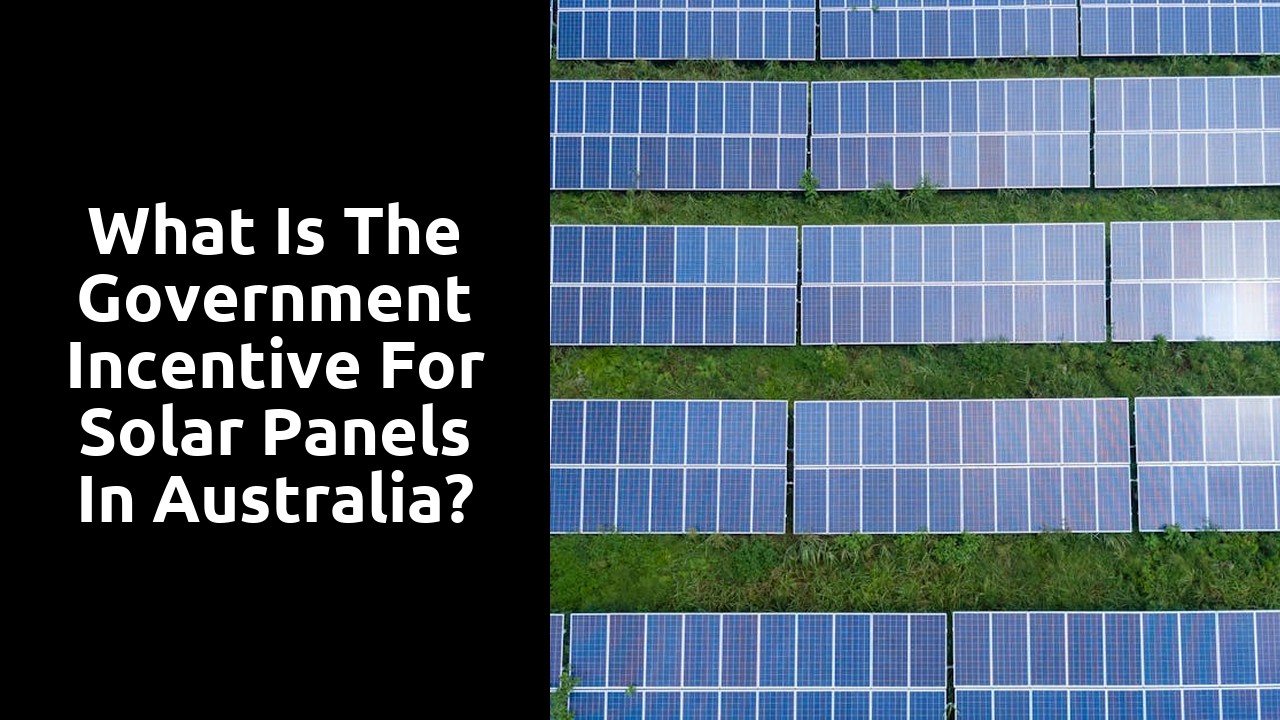
Table Of Contents
Impact of Solar Panel Installation on the Environment
The installation of solar panels has a significant positive impact on the environment in Australia. By harnessing the power of the sun to generate electricity, solar panels help reduce the reliance on fossil fuels. This reduction in fossil fuel consumption directly translates to a decrease in harmful greenhouse gas emissions, which are a major contributor to climate change. Solar panel installations play a crucial role in mitigating the effects of global warming by providing a clean and renewable source of energy. The government recognises the importance of promoting sustainable energy practices and has instituted Solar Energy Tax Incentives to encourage more homeowners and businesses to adopt solar technology.
Moreover, the widespread adoption of solar panels not only reduces carbon emissions but also helps in conserving natural resources. Traditional energy sources like coal, oil, and natural gas are finite and contribute to environmental degradation during extraction and consumption. Solar energy, on the other hand, is a renewable resource that can be harnessed without depleting Earth's reserves. By supporting the installation of solar panels through various incentives, the government is paving the way towards a greener and more sustainable future for Australia. Solar Energy Tax Incentives serve as a catalyst for individuals and organisations to embrace clean energy solutions and contribute to a healthier planet for future generations.
Reduction in Carbon Emissions
Solar panel installations in Australia have significantly contributed to the reduction of carbon emissions. The adoption of solar energy systems across residential and commercial sectors has proved to be a key driver in lowering the country's carbon footprint. These reductions are closely tied to the government's push towards sustainable energy solutions, with solar energy tax incentives playing a crucial role in encouraging individuals and businesses to make the switch to renewable energy sources.
The substantial decline in carbon emissions resulting from the widespread installation of solar panels underscores the tangible benefits of embracing renewable energy in the fight against climate change. As more Australians recognise the environmental advantages and cost savings associated with solar energy, the uptake of solar panel systems is expected to continue rising. The government's commitment to supporting this transition through solar energy tax incentives serves as a pivotal strategy in driving the shift towards a greener and more sustainable future for Australia.
Future of Solar Energy in Australia
Solar energy in Australia is positioned for continued growth and innovation in the coming years. The government's support through initiatives such as Solar Energy Tax Incentives has laid a strong foundation for the expansion of renewable energy sources. As technology continues to advance, we can expect to see more efficient solar panels and improved storage solutions, making solar energy an even more viable option for households and businesses across the country.
The Future of Solar Energy in Australia is promising, with ongoing efforts to increase the uptake of renewable energy sources. Innovation and technological advancements play a key role in driving the solar energy sector forward, leading to more sustainable practices and reduced reliance on fossil fuels. As the government continues to prioritise clean energy initiatives, we can anticipate a significant shift towards a more environmentally friendly and sustainable energy framework.
Innovation and Technological Advancements
In recent years, Australia has witnessed significant advancements in solar technology and innovations, making solar panels an increasingly viable and attractive option for households and businesses. These technological advancements have led to higher efficiency rates, improved durability, and more aesthetically pleasing designs for solar panels. Through continuous research and development, the solar energy industry in Australia has been able to offer consumers more cost-effective and sustainable solutions. The government's support for innovation in the solar energy sector has been evident through various incentives and schemes aimed at promoting the uptake of renewable energy sources, such as the Solar Energy Tax Incentives.
Moreover, technological advancements in solar energy systems have paved the way for increased reliability and storage capabilities, allowing homeowners and businesses to better harness the power of the sun. The integration of smart technologies and monitoring systems has enabled users to optimize their energy consumption and minimize wastage. As the solar industry in Australia continues to evolve, we can expect to see further breakthroughs that make solar panels even more accessible and efficient for all types of users. By fostering a culture of innovation and investing in research and development, Australia is positioning itself as a global leader in renewable energy technologies.
Comparison of Solar Panel Incentives Across States
When it comes to the promotion of renewable energy sources, Australian states have varying approaches to incentivize the installation of solar panels. One significant factor to consider is the different Solar Energy Tax Incentives provided across states. These incentives play a crucial role in influencing individual and business decisions to invest in solar panel systems, ultimately contributing to the overall uptake of solar energy in the country.
States such as South Australia and New South Wales offer substantial rebates and feed-in tariffs as part of their Solar Energy Tax Incentives initiatives. On the other hand, Western Australia and Queensland have adopted different models with varied rebate amounts and eligibility criteria. Understanding these differences is essential for residents and businesses looking to capitalize on the financial benefits of solar panel installation and contribute to sustainable energy consumption.
Variations in Rebate Amounts
The Australian government offers various rebates and incentives to encourage the adoption of solar panels across different states. These incentives aim to make solar energy more accessible and affordable for households and businesses. However, the rebate amounts and criteria can vary between states, creating discrepancies in the support provided to those looking to invest in solar energy systems. By understanding these variations in rebate amounts, individuals can make informed decisions about the financial benefits of installing solar panels in their specific location.
Solar panel rebates are influenced by factors such as state policies, energy targets, and budget allocations. For example, states like New South Wales and South Australia may offer higher rebate amounts compared to Queensland or Victoria. Additionally, some states may provide additional benefits such as feed-in tariffs or interest-free loans to further incentivize the uptake of solar energy. It is vital for consumers to research and compare the rebate programs available in their state to maximize the Solar Energy Tax Incentives and savings from installing solar panels.
FAQS
What government incentives are available for installing solar panels in Australia?
The Australian government offers various incentives such as Small-scale Technology Certificates (STCs) and rebates to encourage the installation of solar panels.
How do Small-scale Technology Certificates (STCs) work in relation to solar panel installations?
STCs are a form of financial incentive provided to homeowners who install solar panels. The number of STCs received is based on the system's size and location.
Are there any rebates available for installing solar panels in Australia?
Yes, some states in Australia offer rebates for the installation of solar panels. These rebates can help reduce the upfront cost of investing in solar energy.
How do solar panel incentives contribute to the reduction of carbon emissions in Australia?
By providing incentives for solar panel installations, the government promotes the use of renewable energy sources, ultimately leading to a reduction in carbon emissions and a more sustainable environment.
How can individuals stay informed about the latest updates on solar panel incentives in Australia?
To stay updated on solar panel incentives and rebates in Australia, individuals can regularly check the government's official websites or consult with local solar energy providers for the most current information.
